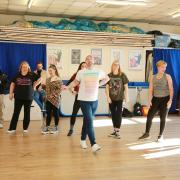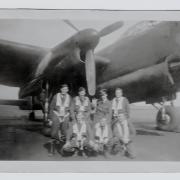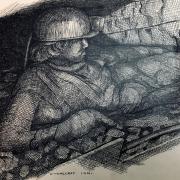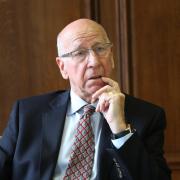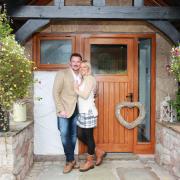Visionary entrepreneur, cook, best-selling writer - Elizabeth Raffald was a woman before her time and she owed much of her success to Arley Hall. Words by Paul Mackenzie

The servants are often the forgotten people in the history of our great stately homes, but Elizabeth Raffald ensured her name would live on. The former housekeeper at Arley Hall would have been a memorable character in any age – she was a visionary entrepreneur, cook and writer of one of the most popular books of the time.
Then called Elizabeth Whittaker, she came to Arley from Pontefract in Yorkshire in about 1760 and was housekeeper for Lady Elizabeth Warburton for three years before marrying the head gardener and moving to Manchester.
The city was growing at a remarkable pace as the textile industry began to transform the North West and Elizabeth spotted an opportunity. Using the skills and knowledge gained from her time providing the highest quality food to the family and guests at Arley Hall, she began to supply Manchester’s newly wealthy business leaders.
Charles Foster, the historian at Arley Hall, said: ‘She realised that many textile manufacturers did not necessarily know how to cook or provide impressive meals for the buyers and guests they were now entertaining. So catered to the need for high quality ready to eat meals using the best ingredients.’
In effect, she invented the M&S ready meal more than 100 years before Mr Marks met Mr Spencer. She also delivered the meals, as well as tea, coffee and other goods from her shop and created the first directory for Manchester, showing who lived in each house in each street.
The resourceful Elizabeth went on to launch a register for servants and charged the growing numbers of potential employers in Manchester for using her service to fill their vacancies.
‘These were all formidable achievements,’ Charles added, but Elizabeth wasn’t finished yet. ‘She knew that many of Manchester’s new rich class had come from fairly simple rural backgrounds and that the whole business of giving parties and hosting dinners and smart social events was new to them.
‘It wasn’t new to her though, and her book The Experienced English Housekeeper told them the smart things to eat, the best recipes and other details such as how to arrange the table. She showed the newly rich how to live like the gentry and it was so popular that in her lifetime there were something like 20 editions.’
The book contained 800 recipes, written, she said ‘purely from practice’ and in plain English ‘so as to be understood by the weakest capacity’. The book is split into three parts – the first dedicated to browning, soups, fish, plain meat, game, pies and puddings, the second covering confectionery and ‘directions to set out a table in the most elegant manner and in the modern taste.’ In the third she discusses pickling, potting and distilling.
She did not forget where she had learned all these skills, though, and the book is dedicated to her former employer at Arley, Lady Warburton. In a note to Lady Warburton, Elizabeth wrote: ‘I am not vain enough to propose adding anything to the experienced housekeeper, but hope these recipes may be of use to young persons who are willing to improve themselves.’
And Arley has not forgotten Elizabeth either – a selection of the recipes from her best-seller will be on the menu this summer in the Tudor Barn restaurant. Steve Hamilton, the general manager at Arley, said: ‘There are a few recipes that we will steer clear of – such as those for turtle and calf’s foot pudding – but there are definitely some traditional meals that visitors are going to love. Elizabeth Raffald is a huge character in Arley’s history and it is only right that we mark her contribution to the estate’s past.’
Arley on the record
Arley historian Charles Fosters knows Eizabeth Whittaker came to Cheshire from Pontefract because the bills for her expenses are among a vast collection of records and arefacts from the hall’s history.
And thousands of the records, which provide a snapshot of life on an English country estate in the 1700s, are now available online.
More than 6,000 housekeepers’ receipts, workers’ timesheets as well as 18th century maps of Cheshire have been scanned and reveal how things have changed around Arley Hall and Gardens over the past 300 years.
Charles, who is married to Jane, the sister of the current Lord Ashbrook whose ancestors have lived at Arley for 500 years, began documenting Arley’s history many years ago when Jane’s mum opened a cupboard door and revealed 800 medieval documents.
He said the website will provide a fascinating insight into many details of life between 1750 and 1790. ‘I’m hoping there will be historians all over the world who will be interested in these records because they are unique to England,’ he said.
Among the archives on the new website are receipts from the housekeeper Elizabeth Whitaker whose recipes included one for turtles that included using their blood and fins.
The website also details the clothes that were bought, the tools used in the gardens and on the estate, and the money spent on the care of the horses.
To view the records go to www.arleyhallarchives.co.uk.






